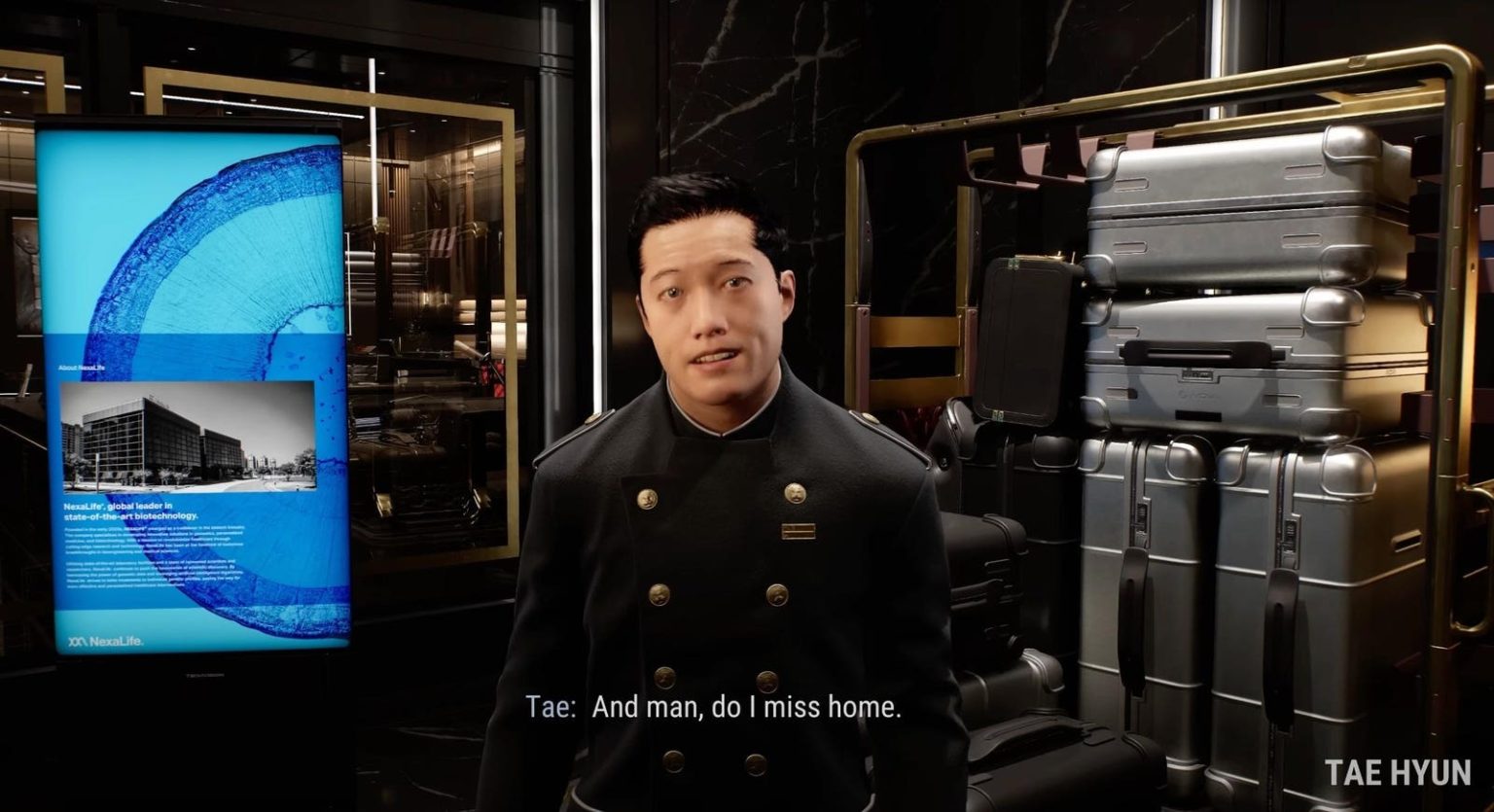Nvidia’s Avatar Cloud Engine (ACE) is introducing chatty AI characters in video games that can hold conversations with players about a variety of topics, even those unrelated to the game’s plot. These characters have back stories and can provide information that players can potentially use to their advantage later on. The technology was demonstrated in a detective game called Covert Protocol, where players interacted with NPCs to gather information to progress through the game.
During the demonstration, players engaged in conversation with a bellhop character named Tae, who shared his ambitions to become a bartender while striving to be the best bellhop. Each NPC in the game is imbued with a detailed back story, allowing players to learn more about the characters. However, the AI characters are not without flaws, as shown when a receptionist mistakenly revealed the room number of a high-profile guest, disrupting the game’s intended flow.
Despite the occasional errors, the concept of interacting with AI characters in a video game is both novel and exciting. The technology allows players to ask characters almost anything, creating a more immersive experience. However, questions remain about whether AI-generated characters can offer the same emotional depth and complexity as traditionally written characters in games such as Red Dead Redemption II or Disco Elysium. While AI NPCs may have a role as secondary characters, their potential dominance in gaming raises concerns about the authenticity and human connection in gaming experiences.
The technology showcased by Nvidia demonstrates the potential of AI to enhance player interactions in video games. By providing NPCs with unique back stories and traits, developers can create a rich virtual world filled with dynamic characters. However, the challenge lies in ensuring that AI characters remain engaging and authentic, without sacrificing the emotional depth and humanity found in traditionally crafted game characters.
As the gaming industry continues to evolve, incorporating AI into narrative-driven games may offer new possibilities for player engagement. While the current AI technology is still in its early stages, further advancements could lead to more nuanced and lifelike interactions with virtual characters. The future of gaming may see a blend of traditional storytelling and AI-generated content, offering players a more personalized and immersive gaming experience. Ultimately, the success of AI NPCs in video games will depend on their ability to complement, rather than overshadow, the human elements that make gaming a truly unique and captivating experience.













